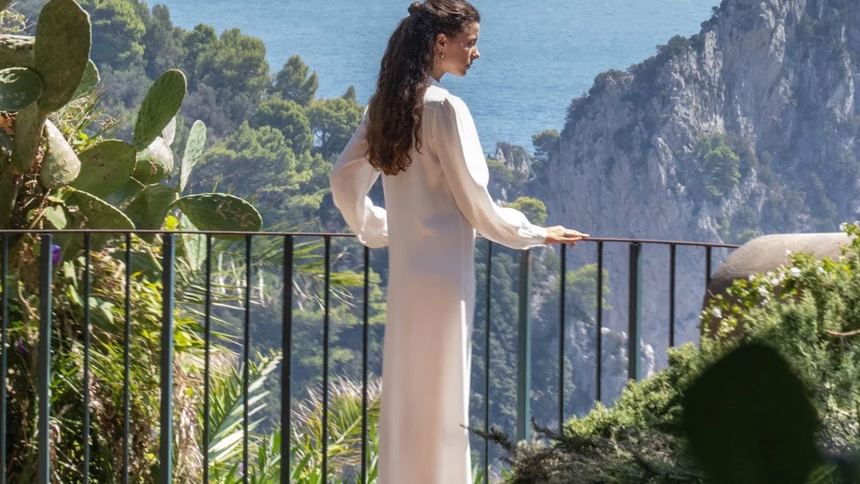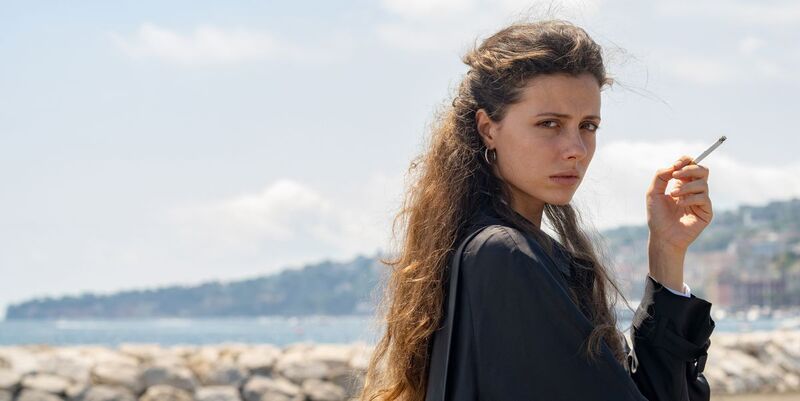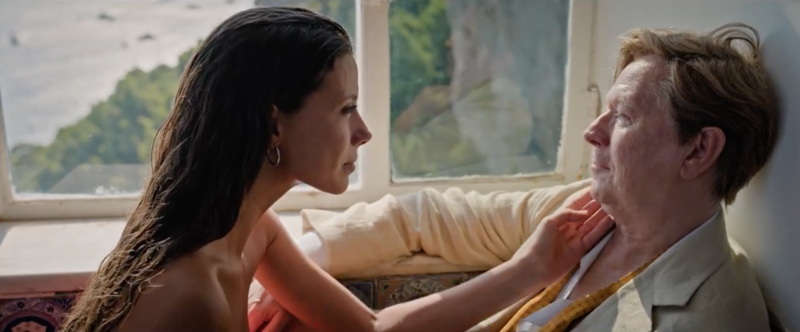Karlovy Vary 2024 Review: PARTHENOPE, Fantasy of Womanhood Through Male Gaze
Paolo Sorrentino, the Oscar-winning Italian director, returns with 'Parthenope,' a visually opulent film that serves as both a love letter to Naples and a very male exploration of womanhood through the intertwining lenses of myth and modernity.

The Oscar-winning Italian director Paolo Sorrentino returns with Parthenope, an epic tale that serves as a love letter to his hometown of Naples. The 136-minute film takes viewers on a journey through the sun-soaked, chaotic streets of Naples, capturing the essence of the city throughout the latter half of the 20th century and a life of one woman.
Sorrentino crafts a personal myth of Naples by following the titular character, Parthenope (Celeste Dalla Porta for much of the film), from her birth in the sea through a life marked by love, loss, guilt, and redemption. Herman Melville cites Parthenope as a source of Naples' mythological identity and Sorrentino brings this notion to the screen.
The life of the eponymous heroine in Parthenope is a modern myth. Born in the sea, a nod to the mythological siren Parthenope, she grows up in a volatile family, attracting the attention of numerous suitors while pursuing her studies in anthropology. The film traces her journey from youthful innocence to a more critical and disenchanted phase, underscored by the persistent questioning of “what is anthropology?”
An early life tragedy propels Parthenope onto an academic path, though she briefly dabbles in acting. Her decade-spanning odyssey through the city sees her attracting a host of youthful or wealthy suitors. Her brother Raimondo (Daniele Rienzo) harbors a possibly mutual incestuous desire towards her sister whose beauty is described as disruptive. Parthenope leads a hedonistic lifestyle until a brief affair with her brother’s friend Sandrino (Dario Aita), who has admired her since childhood, culminates in Raimondo's premature death, forever marking her life with tragedy.
True to its operatic nature, Parthenope unfolds through a series of disjointed vignettes, each inhabited by a different set of characters and marked by cryptic soliloquies and dialogues. The grand funeral of her brother, which is disrupted by a cholera outbreak, symbolized by a giant cistern blocking the funeral procession as it cleanses the city of the disease.
Parthenope's academic journey sees her forming an unlikely friendship with elderly anthropology professor Devoto Marotta (Silvio Orlando), possibly the only non-sexual relationship she has with a male character. She encounters her favorite author, the melancholic alcoholic John Cheever (Gary Oldman), who prophetically tells her that her beauty will “open doors and start wars.”
Her foray into acting introduces her to teacher Flora Malva (Isabella Ferrari), who is supposed to reveal the secrets of the craft, and connects her to Greta Cool (Luisa Ranieri), a Neapolitan diva and movie sex symbol. Cool's bizarre behavior on a tribute cruise offends many Neapolitans, adding another strange episode to Parthenope's sprawling life. In the dark alleys of Naples, Parthenope witnesses a public ritual forging an alliance between two gangs, with their children engaging in public sex cheered on by their relatives.
Sorrentino is known for his visually opulent and indulgent films, and he unpacks his signature style in Parthenope. His films often explore the juxtaposition of beauty and melancholy, a theme evident in his previous works and carried through to this latest endeavor. Parthenope represents Sorrentino's attempt to weave a modern epic of womanhood around the central protagonist. However, this effort is sometimes undermined by his penchant for aesthetic excess, which places form over substance.
Daria D'Antonio, the director of photography who previously lensed The Hand of God and The Great Beauty, brings a crisp visual overload to Parthenope reminiscent of high-end fashion brands. She delves into the fetishization of both the protagonist and the city, creating opulent scenes that verge on urban fantasy with mild surrealistic overtones. Sorrentino blends these lavish images with occasional transgressive scenes, maintaining a careful balance to avoid graphic alienation, as exemplified in the portrayal of the lust-seeking bishop (Pepe Lanzetta) and his encounter with Parthenope on an anthropoligcal field quest for the occasion of the feast of San Gennaro.
Ultimately, Parthenope emerges as a psychogeographic fantasy of womanhood, filtered through a male gaze that oscillates between a Gucci photoshoot and an exhumation of Felliniesque poetics. Yet the film teeters dangerously close to the aesthetics of kitsch.
Parthenope is an opulent spectacle that oscillates between a coming-of-age story, youthful romp, family tragedy, grotesque comedy, and dreamlike scenarios. It chronicles the life of a semi-mythic protagonist who captivates every male she encounters while steadfastly retaining her freedom. Sorrentino's ode to his hometown juxtaposes the carnal with the transcendental, reflecting his very masculine idea of a celebration of womanhood.
A24 will release the film theatrically in the U.S this year.
Parthenope
Director(s)
- Paolo Sorrentino
Writer(s)
- Paolo Sorrentino
Cast
- Gary Oldman
- Stefania Sandrelli
- Luisa Ranieri









